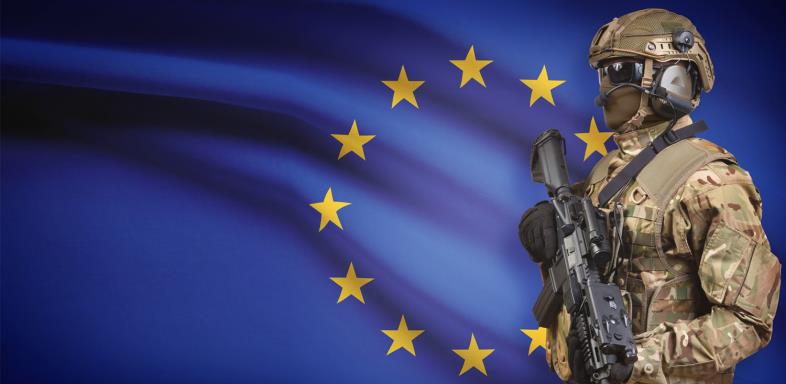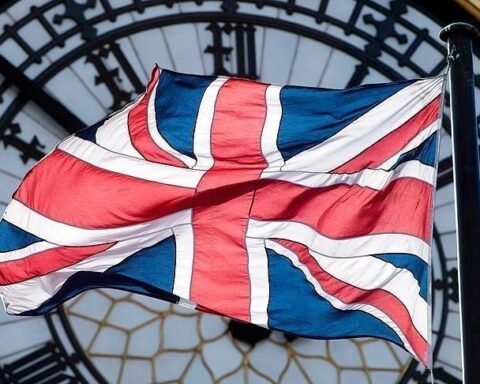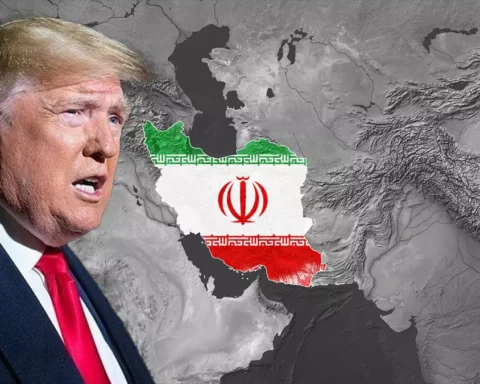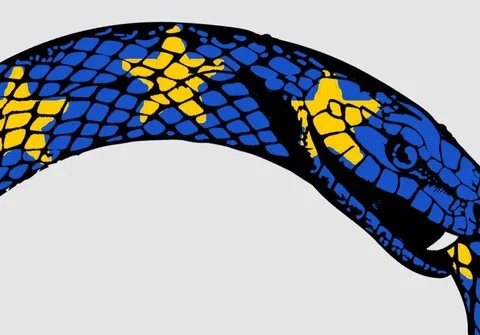While European countries have pledged to boost defense spending, they remain strategically reliant on the United States, an increasingly unreliable ally. As the US threatens disengagement, political leaders still refuse to ask the only question that matters: Can Europe ensure its security on its own?
PARIS – Just days after NATO Secretary-General Mark Rutte hailed the alliance’s summit in The Hague as an unqualified success, the United States halted a planned shipment of military equipment to Ukraine and eased some sanctions on several Russian banks. Since then, US President Donald Trump has apparently reversed that decision, taken by Defense Secretary Pete Hegseth. But nobody knows the extent and the length of this new reversal. US policy remains deeply unpredictable. And this is what scares the Europeans. Therefore, and despite Rutte’s obsequiousness, Trump is signaling that America’s security commitments are no longer tied to European countries’ efforts to strengthen their own defenses.
At the summit, NATO members agreed to raise the alliance’s defense-spending target from 2% to 5% of GDP by 2035. While Russia’s invasion of Ukraine has underscored the need for Europe to defend itself, it was Trump’s disdainful attitude toward the European Union that ultimately convinced leaders to act.
Still, the relative ease with which this spending pledge was made leaves serious questions about how it will be fulfilled. Germany has some fiscal room, thanks to years of underspending and low public debt, but other major European countries – including France, the United Kingdom, and Italy – face severe budgetary constraints.
Beyond budgetary challenges, NATO’s new defense commitment presents deeper strategic problems. In particular, with the US setting the terms, it will be up to Trump and his successors to decide whether Europe is meeting its obligations.
The problem is compounded by the fact that European countries have committed to spending 5% of their GDP on defense without a corresponding commitment from the US. By pledging to boost defense spending before the US defines the scope of its presence on the continent, they risk encouraging American disengagement. It’s a classic Catch-22: If European countries fall short, the US will have grounds to scale back its support; and if they meet their targets, US policymakers could argue that Europe no longer needs US military backing.
Despite this risk, no EU leader has sought to link the increase in defense spending to a concrete security commitment from the US. And the risk is real: Elbridge Colby, the US Under-Secretary of Defense for Policy and the architect of Trump’s NATO strategy, has argued that the US must reduce its military obligations, even to key allies like Australia. The hugs in The Hague cannot mask the fact that being an ally of the United States under Trump is becoming a major problem in both Europe and Asia.
Given these dynamics, the NATO summit can hardly be seen as a victory for Europe. Moreover, the notion that increased defense spending alone will solve the EU’s strategic problems is deeply misguided. Harmonizing defense budgets across Europe to minimize duplication and waste will be difficult, and there is no consensus on whether European defense funds should be allocated exclusively to European firms, largely because many in Europe still believe that maintaining close ties with the US guarantees continued goodwill and military backing. On this issue, Macron remains largely isolated. Most Europeans think that his plea to buy European is actually a way for him to promote the French defense industry.
In practice, much of the initial spending will likely go to US firms, which are better positioned to deliver critical military equipment quickly. But there are other problems. Consider, for example, the Future Combat Air System (FCAS) – Europe’s most ambitious joint aircraft program to date – which involves Dassault, Airbus, and Indra. Despite its strategic importance, the project faces growing tensions between Dassault and Airbus.
France’s Dassault, confident in its technological capabilities, opposes a governance structure that grants veto power to German and Spanish firms. It insists on leading the FCAS program and claims that it could proceed independently if necessary. These ongoing tensions continue to generate uncertainty about the project’s future, despite strong political backing from France and Germany, highlighting the persistent industrial rivalries that undermine collective European defense efforts.
Moreover, with many Europeans fearing that alienating Trump could accelerate US disengagement from Europe and viewing any move toward greater EU autonomy as a potential threat to NATO, national procurement decisions are being shaped accordingly. Denmark’s recent order of four additional F-35s from the US, for example, came just as Trump renewed his threats to take over Greenland. Purchasing F-35s, which are far from the most advanced US-made fighter jets, was seen as a way to appease him. Thus, in 2035, there will probably be between 500 and 700 F35s in service in Europe, compared to only 24 Rafales outside France.
For most EU member states, buying European is simply not a priority. Yet reliance on American military equipment effectively gives the US control over its use. Blocking weekly software updates, for example, would be enough to degrade the F-35’s performance. Moreover, all US-made aircraft must submit flight plans to their American manufacturers, meaning that no European military operation involving these jets can take place without US knowledge.
But the notion that the US might one day pursue objectives contrary to Europe’s interests barely registers with most EU policymakers. And even when it does, the idea is so unsettling that it is quickly dismissed.
All of this underscores Europe’s political weaknesses and fears. Kaja Kallas, the EU’s High Representative for Foreign Affairs and Security Policy, epitomizes the prevailing attitude that the US should never be criticized publicly, and European Council President António Costa has remained largely silent on major security issues since taking office in 2024. Defense Commissioner Andrius Kubilius is one of the few willing to acknowledge the need for Europe to prepare to defend itself without American support. But even he avoids grappling with the political and strategic implications of such a shift, especially when it comes to decision-making and procurement.
While the first two years of the war in Ukraine boosted the EU’s credibility, the current stalemate and America’s retreat have revealed an uncomfortable reality: Europe fears nothing more than genuine independence.
*Zaki Laïdi, a Professor at Sciences Po, is a former special adviser to the High Representative of the European Union for Foreign Affairs and Security Policy.






